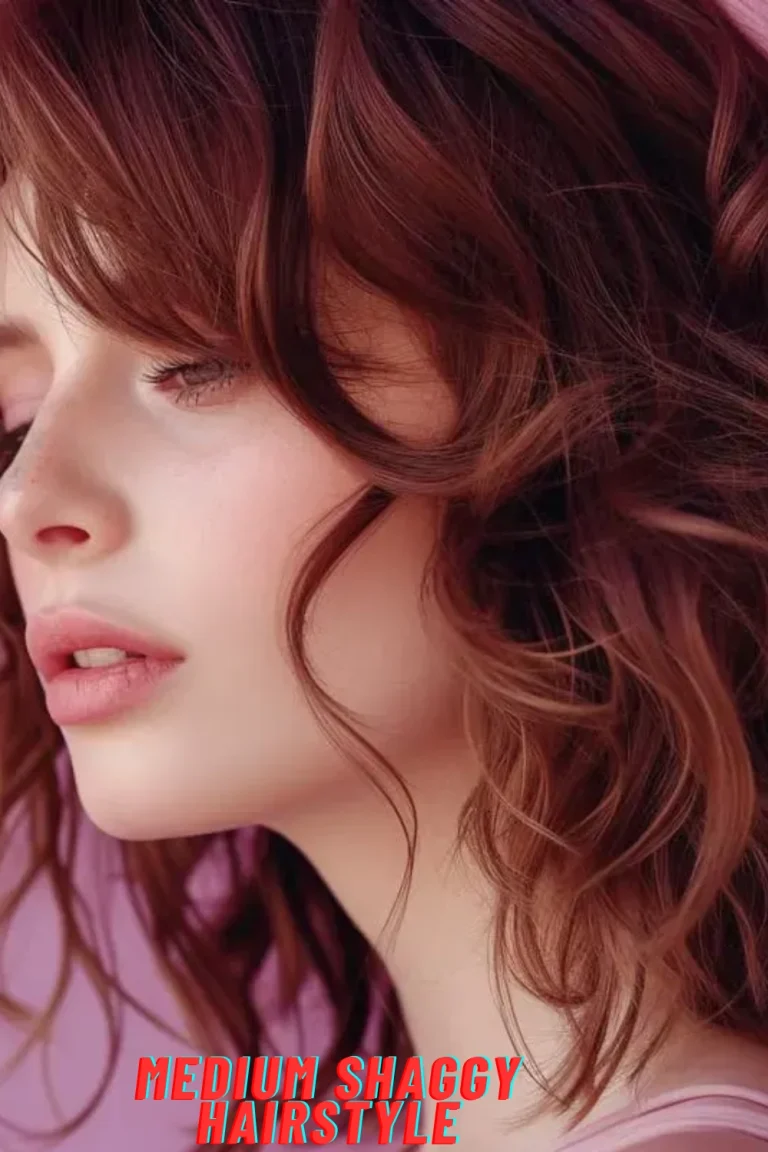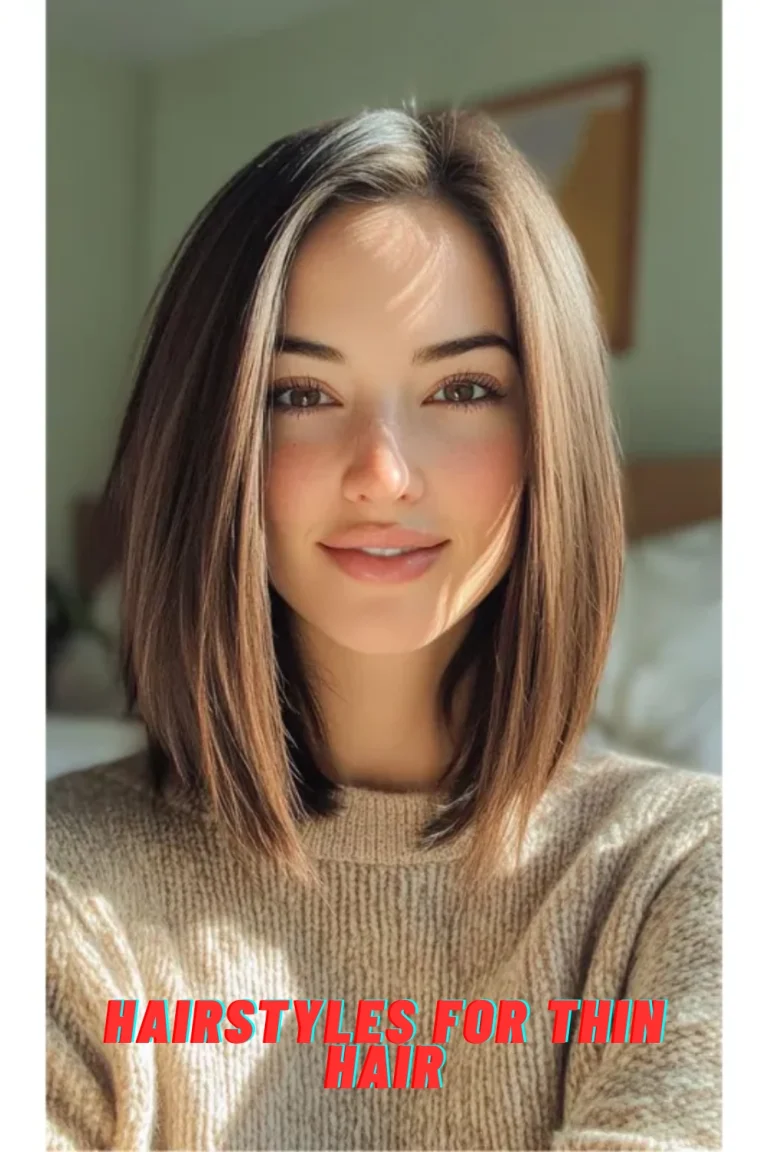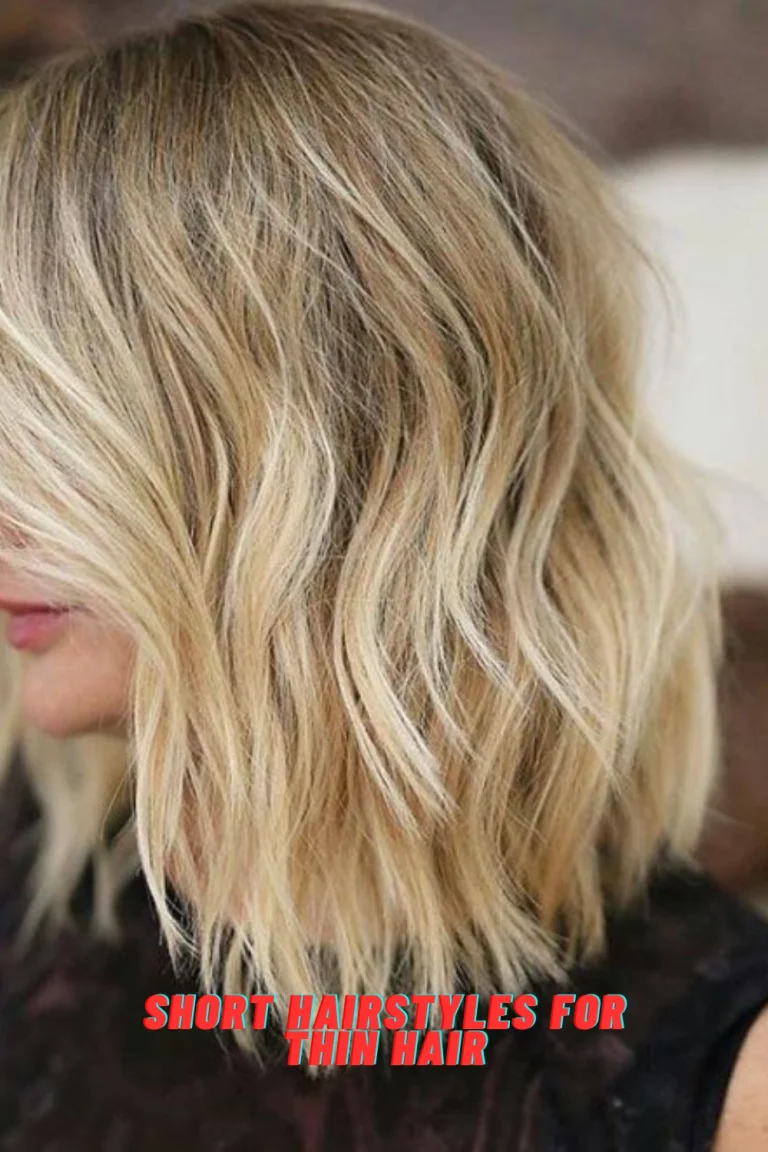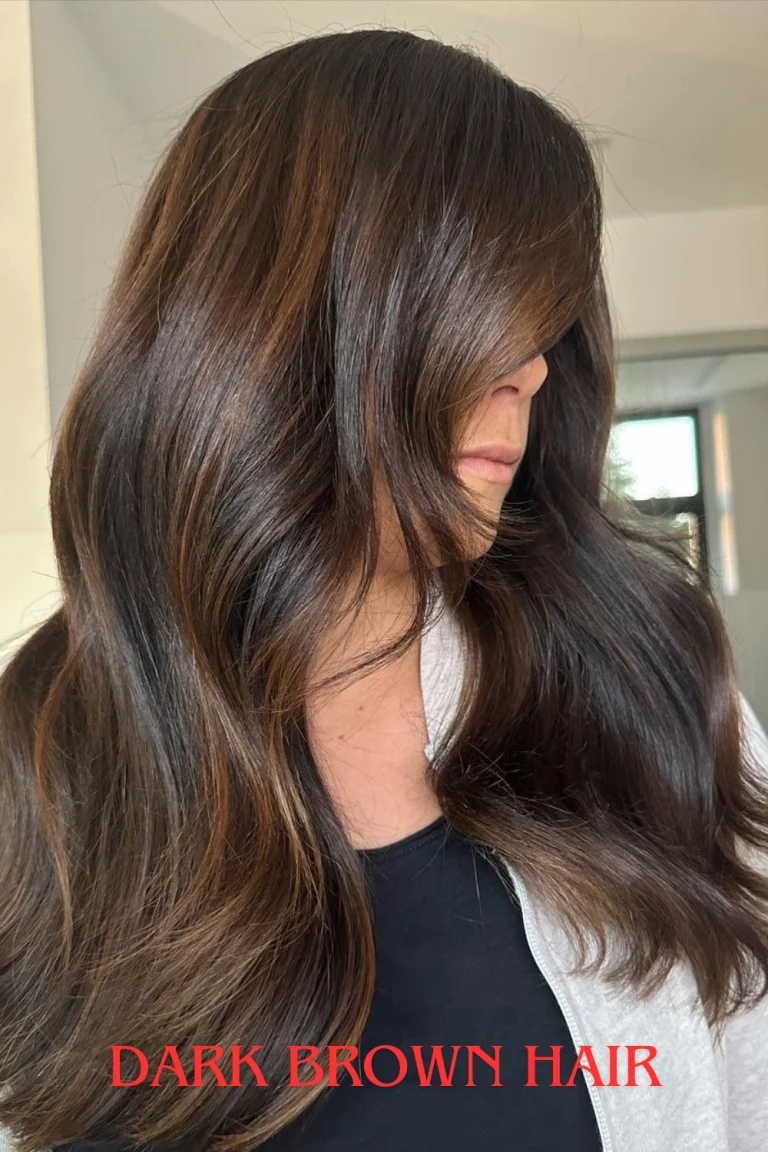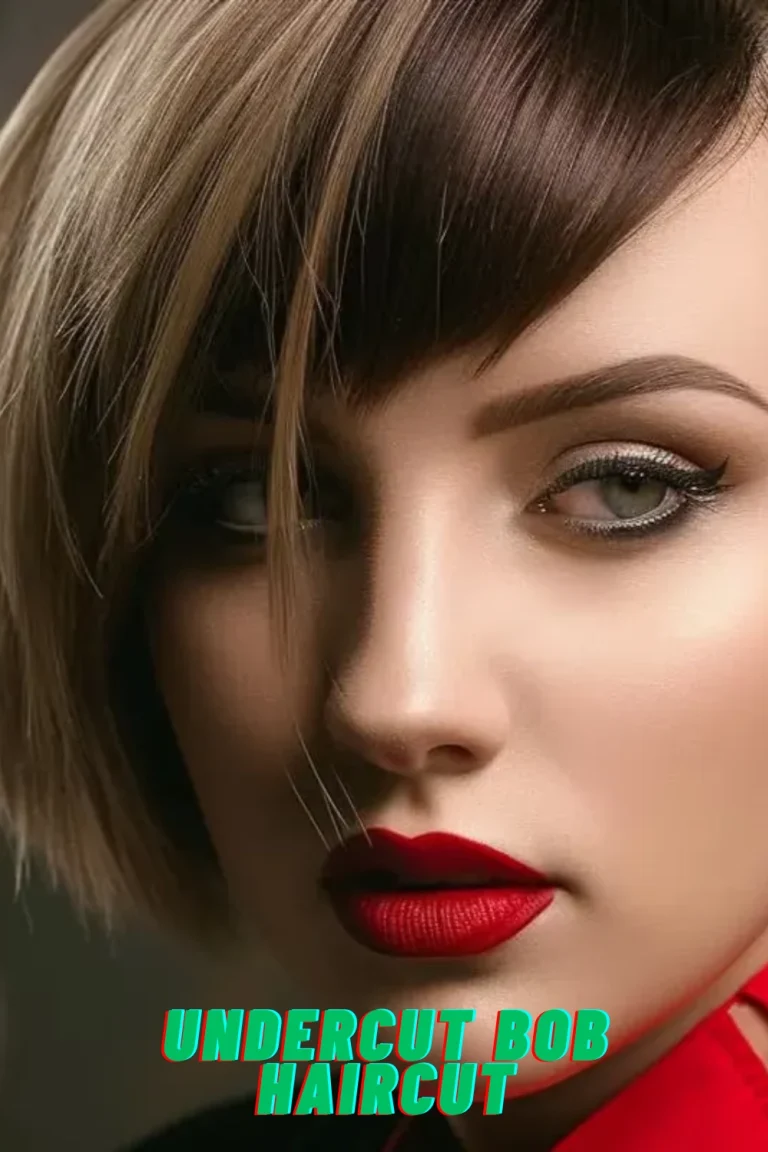25 Iconic Vintage Hairstyles That Will Never Go Out of Style
Vintage hairstyles are like windows into the past—each one tells a story of a generation, of shifting beauty standards, and of women who used hair as a form of self-expression. Whether you’re channeling the glamour of old Hollywood, the rebellious spirit of the flapper era, or the poised elegance of postwar fashion, these hairstyles aren’t just throwbacks—they’re timeless blueprints that still inspire today’s trends. Let’s explore 25 vintage hairstyles that continue to turn heads and warm hearts.
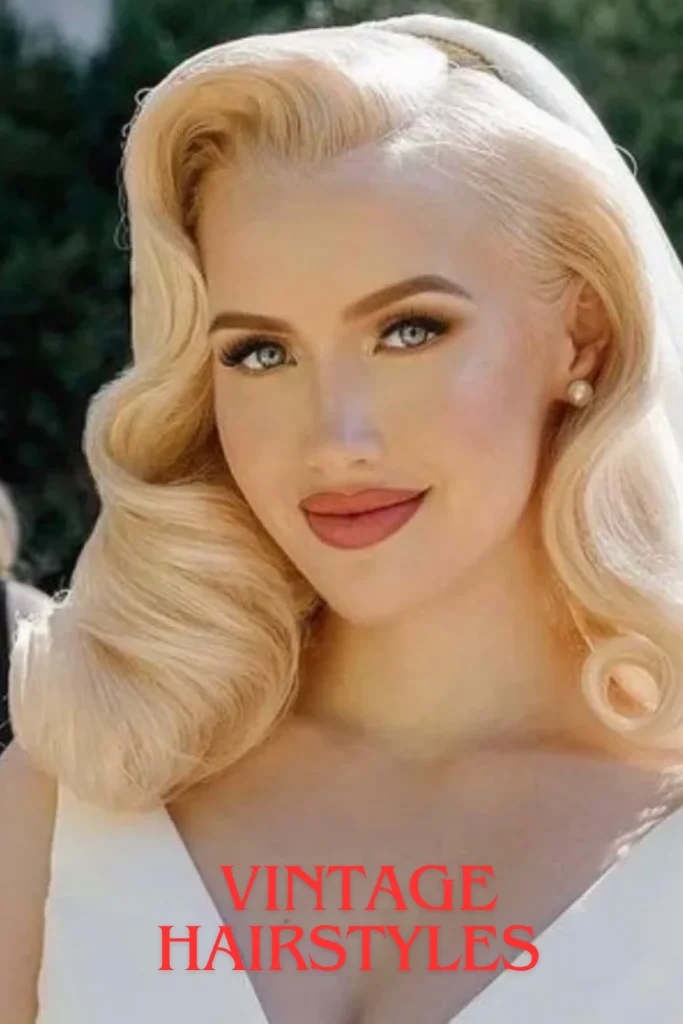
1. Victory Rolls
Originating in the 1940s during WWII, victory rolls were more than just a fashion statement—they were symbols of female strength and patriotism. These voluminous curls rolled inward and pinned close to the scalp were often worn by women working in factories or volunteering, proving style didn’t have to be sacrificed for duty. Today, they’re a favorite among pin-up fans and vintage enthusiasts for their dramatic flair and empowering vibe.
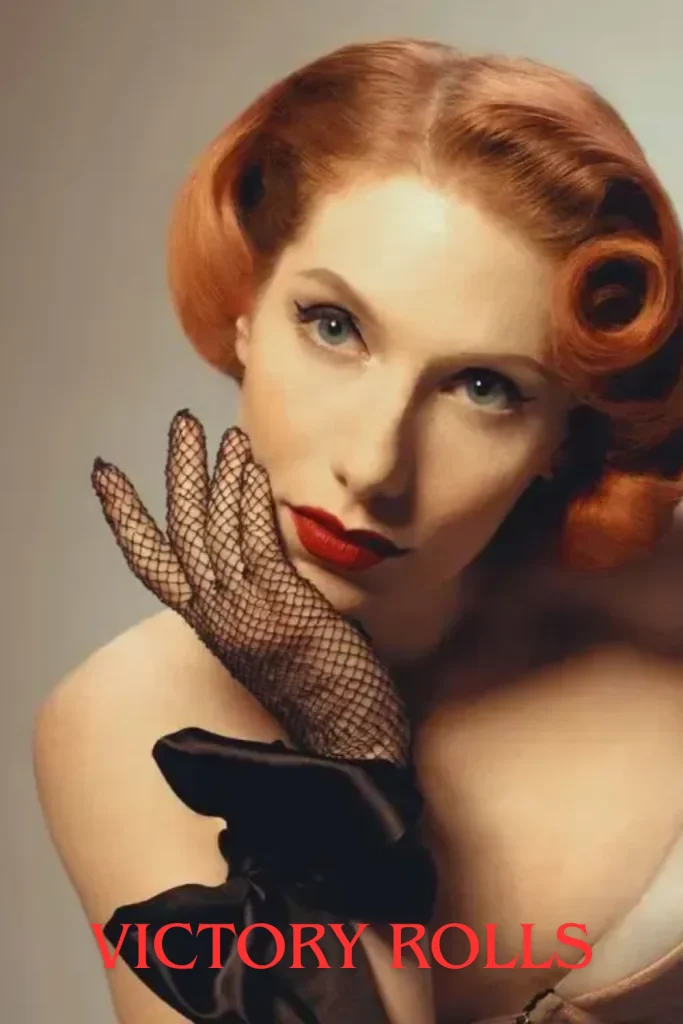
Also Read: Ear Length Short Bob Hairstyles
2. Finger Waves
Finger waves became the pinnacle of flapper chic in the roaring 1920s. Created using only the fingers and a comb, these S-shaped ripples lay flat against the head, creating a glossy, sculptural effect. They exude a level of elegance and effort that’s almost hypnotic. Popular among both short and long hair styles, they give any look a sultry, screen-siren feel, making them a timeless choice for red carpet events and formal occasions.
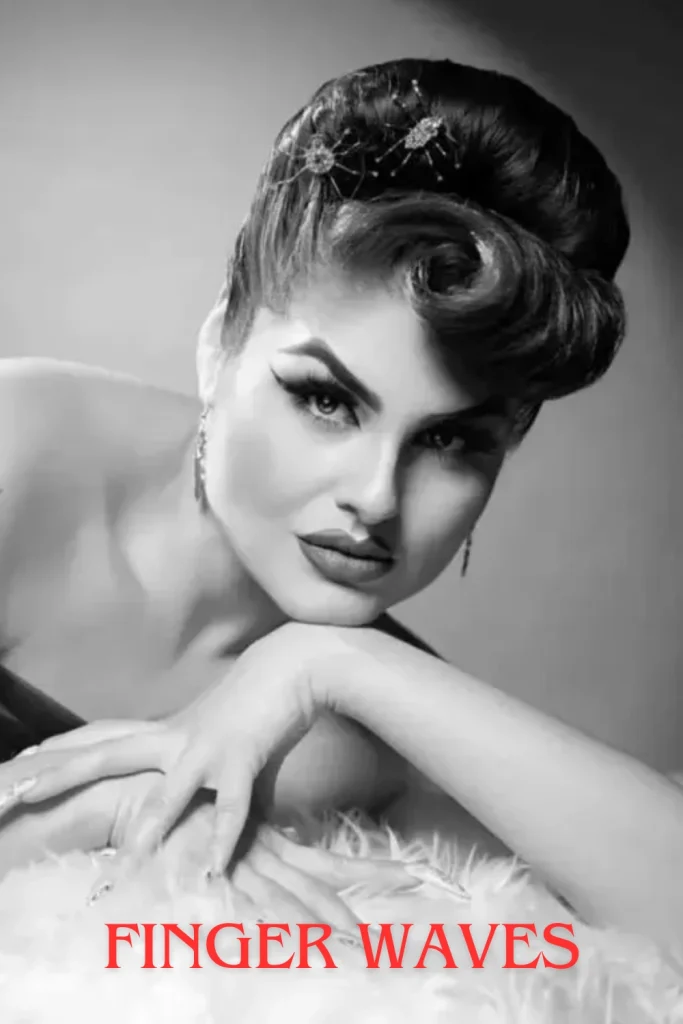
3. Gibson Tuck
The Gibson tuck harks back to the Edwardian era, but its influence extended well into the early 20th century. This soft updo, where the hair is gently rolled and tucked at the nape of the neck, was once a symbol of refinement and grace. It works beautifully with floral pins or pearl accessories, and is ideal for those who love a minimal, romantic aesthetic that whispers rather than shouts sophistication.
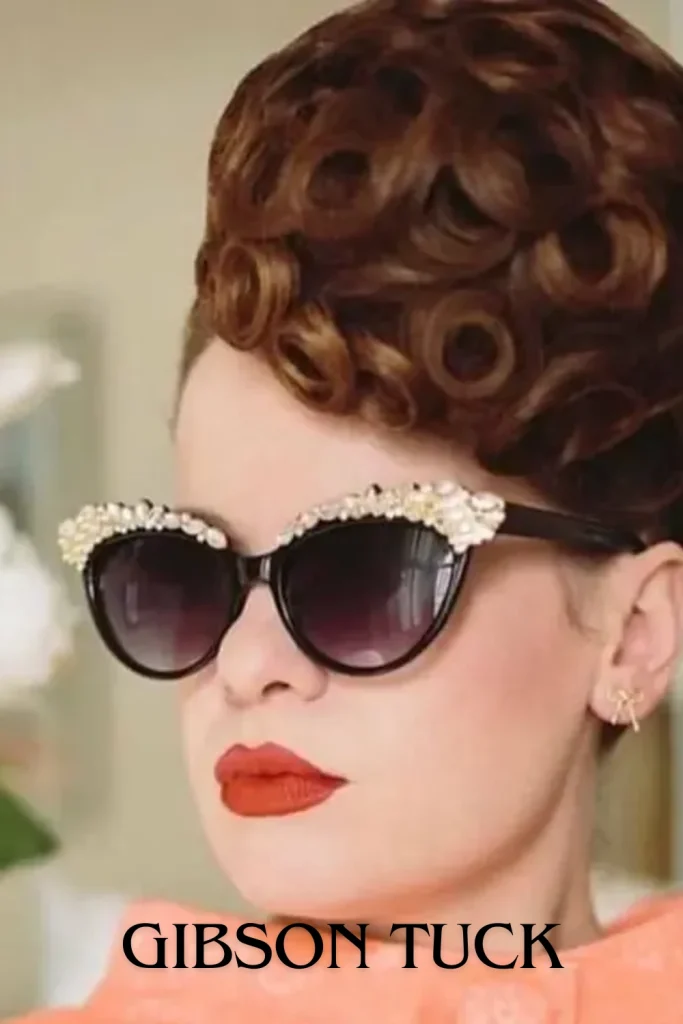
4. Beehive
The beehive defined the 1960s with its sky-high silhouette and unapologetic volume. Often achieved with intense teasing and generous amounts of hairspray, this towering look was a go-to for singers like Dusty Springfield and girl groups of the era. It radiates both drama and nostalgia, and when balanced with a sleek dress or mod makeup, it captures the essence of retro glamour with a bold, bossy edge.
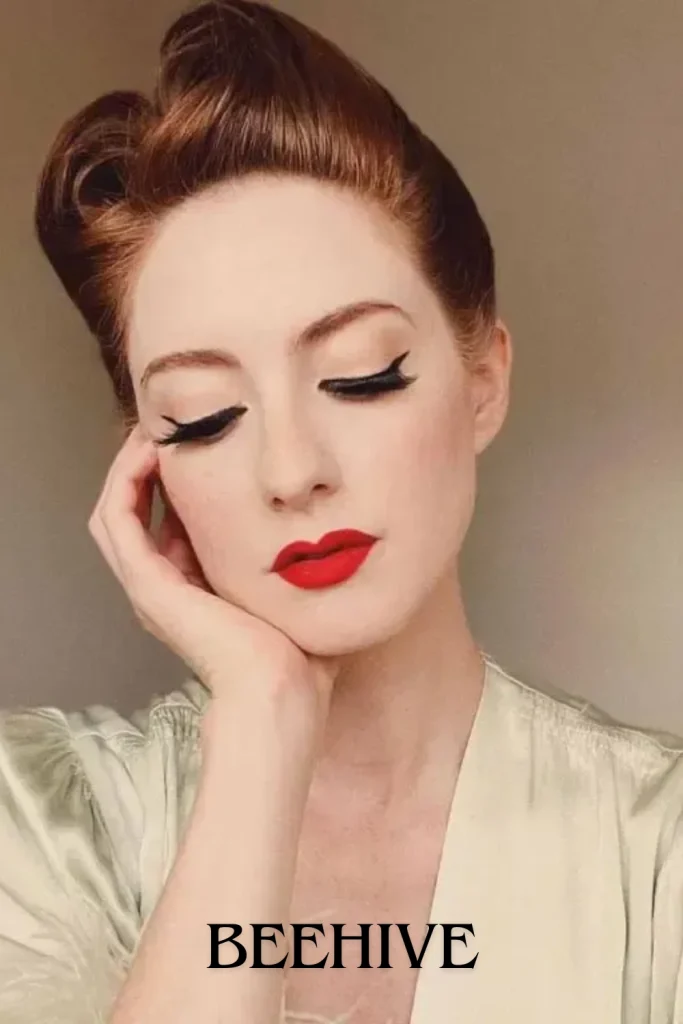
5. Marilyn Monroe Curls
When you think of timeless sex appeal, Marilyn Monroe’s platinum curls are often the first to come to mind. These soft, structured curls—usually styled into a voluminous bob—frame the face with a playful bounce that oozes confidence and charm. Perfect for vintage lovers who want to channel bombshell energy, they suit most face shapes and add a touch of movie star magic to any evening look.
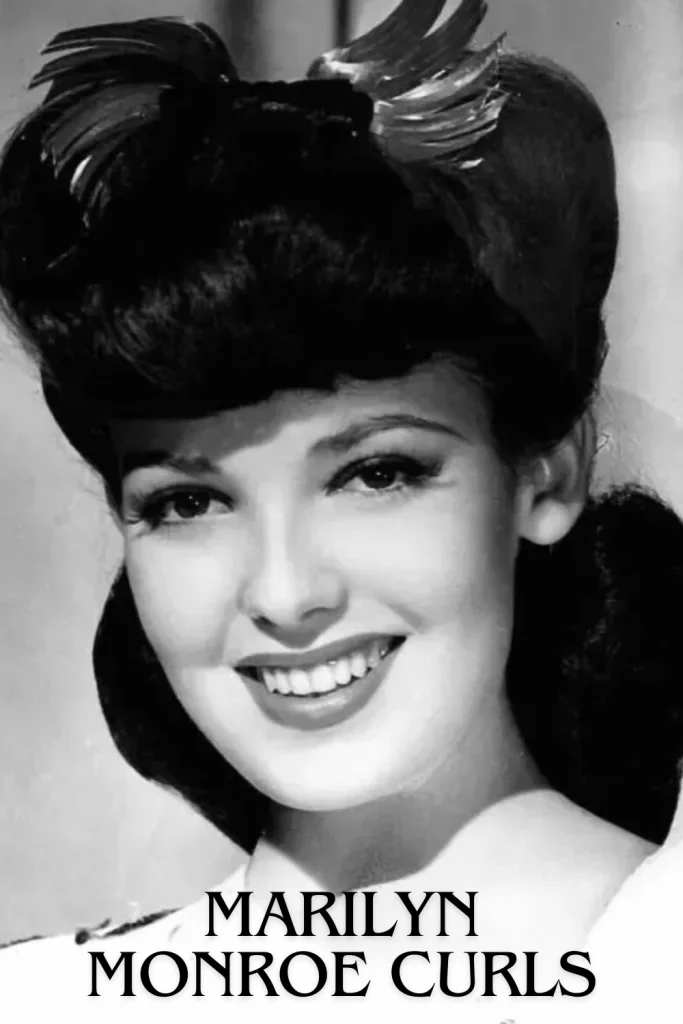
6. Poodle Cut
With tight curls piled high and close to the head, the poodle cut was all the rage in the 1950s, famously worn by Lucille Ball. It was practical yet stylish, especially for women who wanted to manage natural curls while still embracing a bold silhouette. This playful, spirited hairstyle pairs well with vintage dresses and red lipstick, creating a lively, animated effect that feels both retro and approachable.
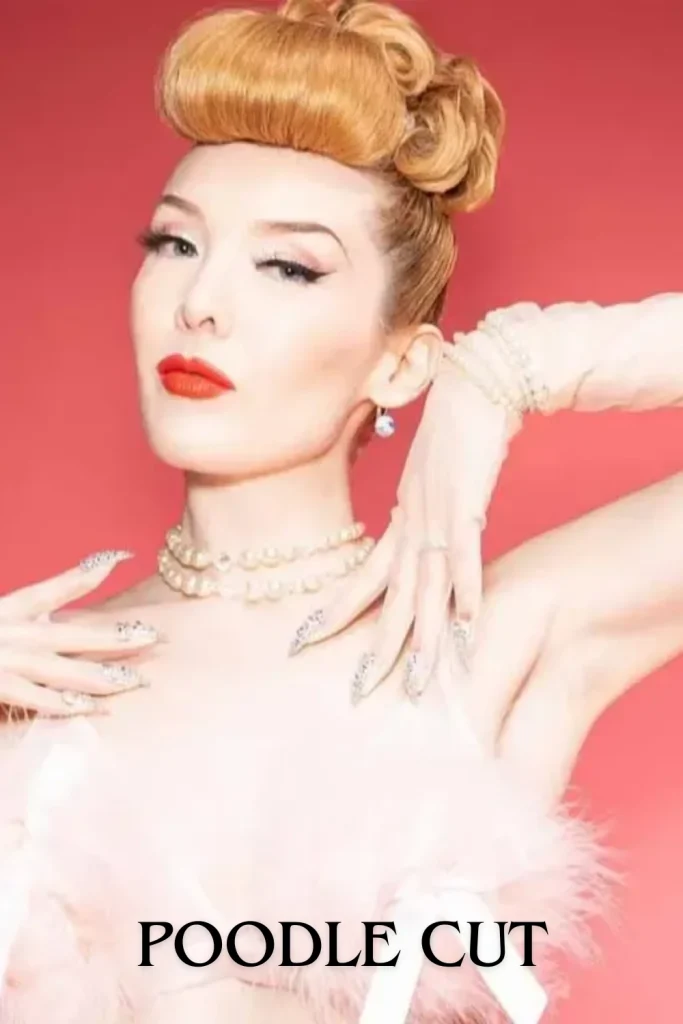
7. Bettie Bangs with Waves
Bettie Page’s short, choppy bangs became a trademark of 1950s pin-up culture. When paired with glossy, shoulder-length waves, this look becomes a blend of sweet and sultry. The sharply cut fringe adds attitude, while the loose curls soften the edges—together creating a striking balance of rebelliousness and glam that continues to inspire modern alt-girl aesthetics.
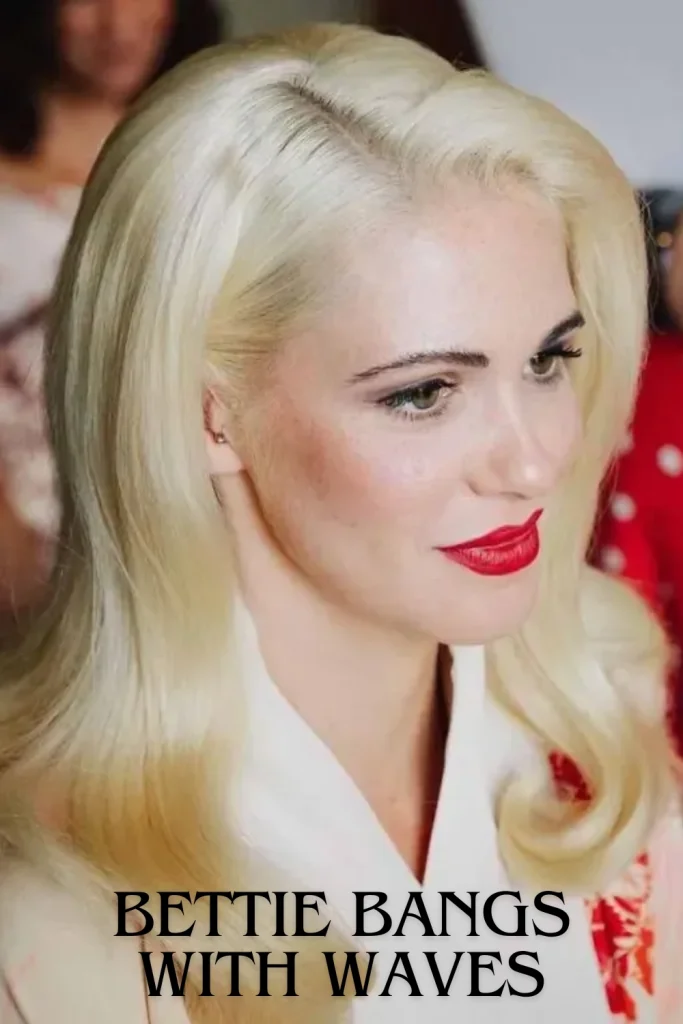
8. Pageboy
The pageboy hairstyle, with its blunt edges and inward-curving shape, offers a sleek, polished look that was popular in the 1940s and ’50s. It frames the face beautifully and pairs especially well with bold lips and cat-eye makeup. Worn with glossy, jet-black or golden hair, the pageboy brings a geometric charm that flatters oval and heart-shaped faces alike.
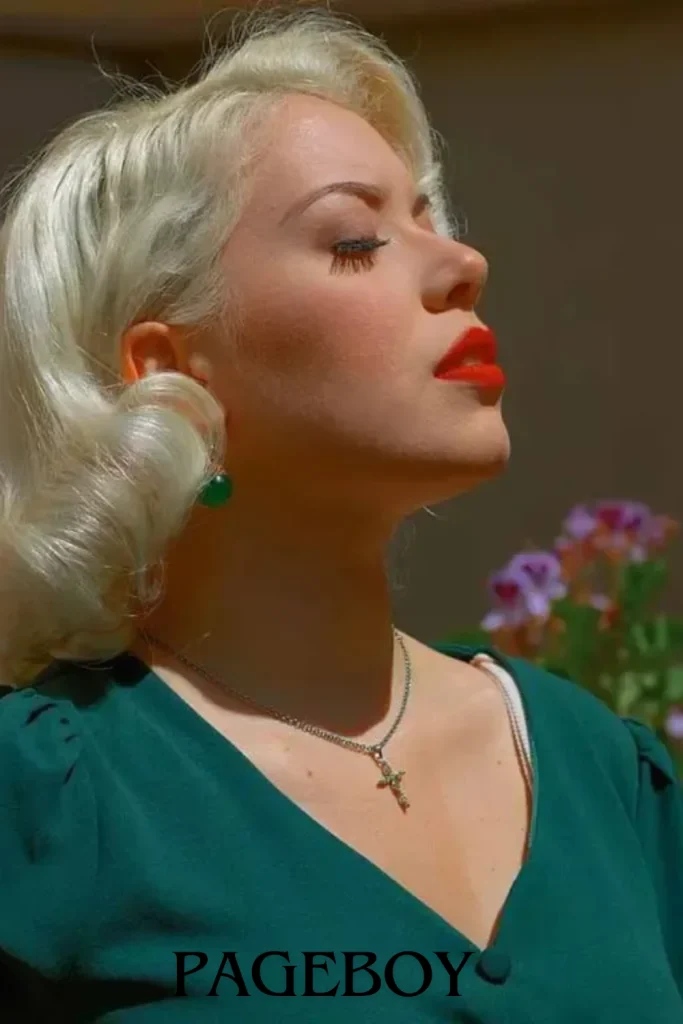
9. The Bouffant
The bouffant is all about volume at the crown and smooth, structured lines around the sides. Seen frequently on 1960s icons like Jackie Kennedy and Priscilla Presley, it’s the hairstyle that says you’re in charge—stylish, composed, and elegant. Add a ribbon, scarf, or pearls and you’ve got a look that transitions effortlessly from daytime refinement to evening glam.
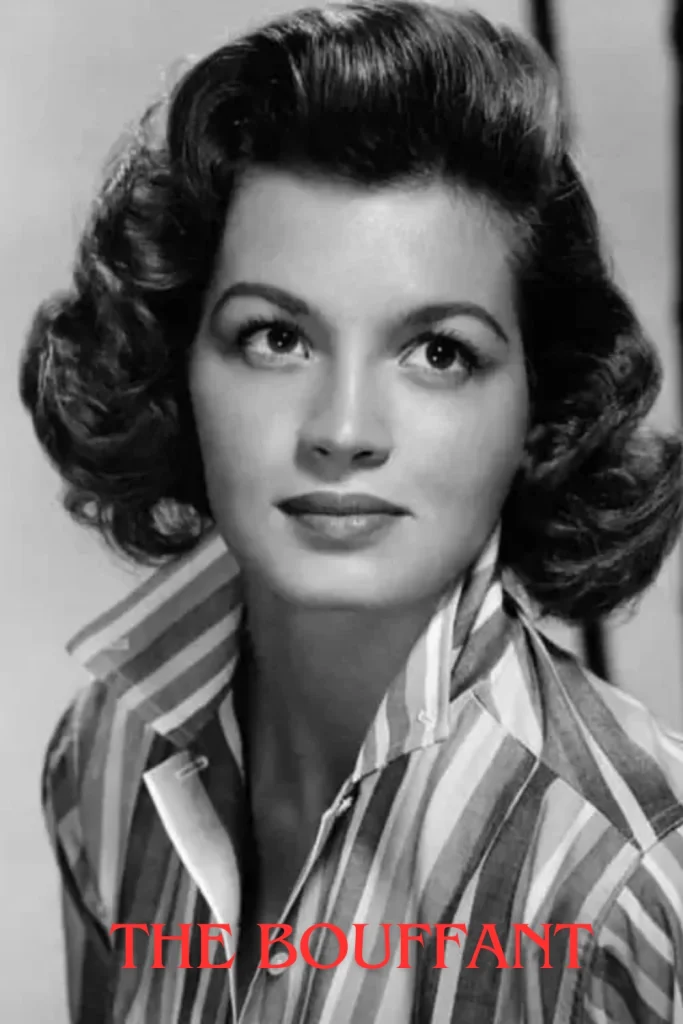
10. Pompadour
With its roots in the 18th century and revived in the rockabilly culture of the 1950s, the pompadour is a voluminous front sweep that’s as stylish today as ever. It works for both men and women, offering a sculptural centerpiece to your hairstyle. Whether you’re going full retro with an updo or modernizing it with an undercut, the pompadour makes a bold, confident statement.
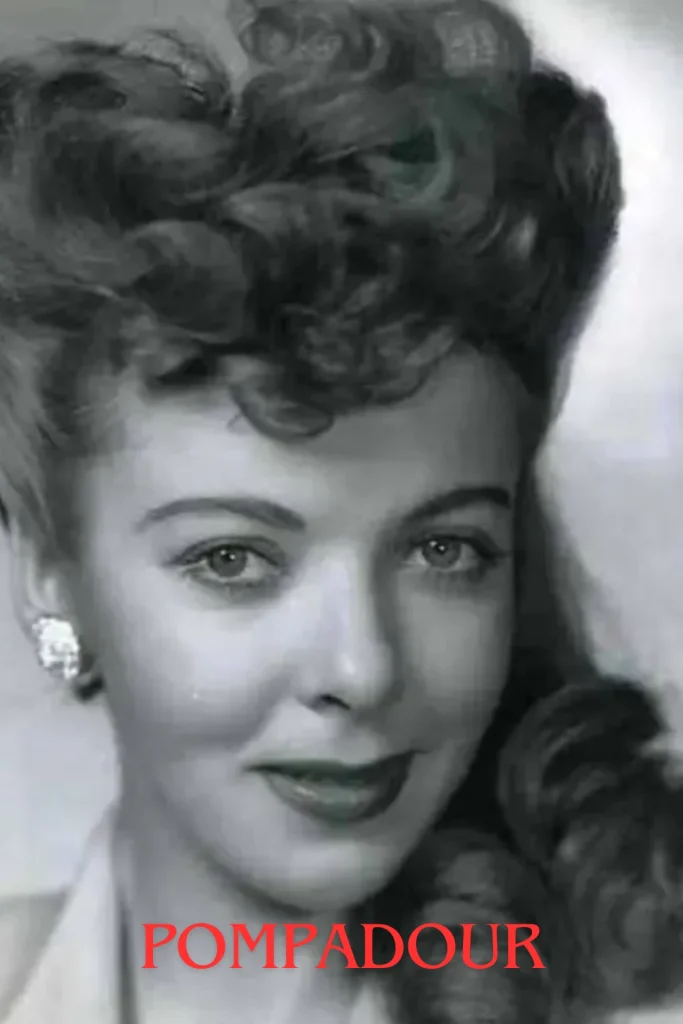
11. Flapper Bob
The flapper bob challenged traditional beauty norms of the 1920s. With its blunt cut and often razor-sharp bangs, it was daring, edgy, and liberating for women tired of Victorian hairdos. Often paired with dramatic makeup and art deco accessories, the bob remains one of the most recognizable—and empowering—vintage styles in history.
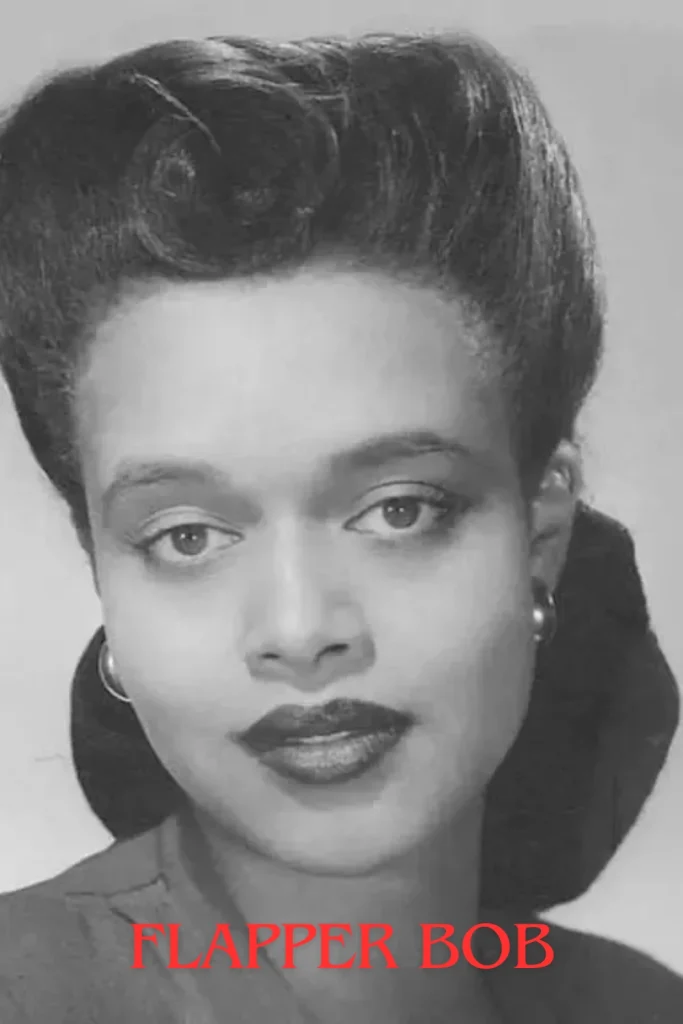
12. Rosie the Riveter Bandana Style
During WWII, this practical updo wrapped in a bandana became a symbol of female resilience and wartime contribution. The style was functional—keeping hair out of the face during labor—but also fashionable, allowing for expressive scarf patterns and pinned curls underneath. Today, it’s worn with pride and personality, symbolizing the strength and style of working women past and present.
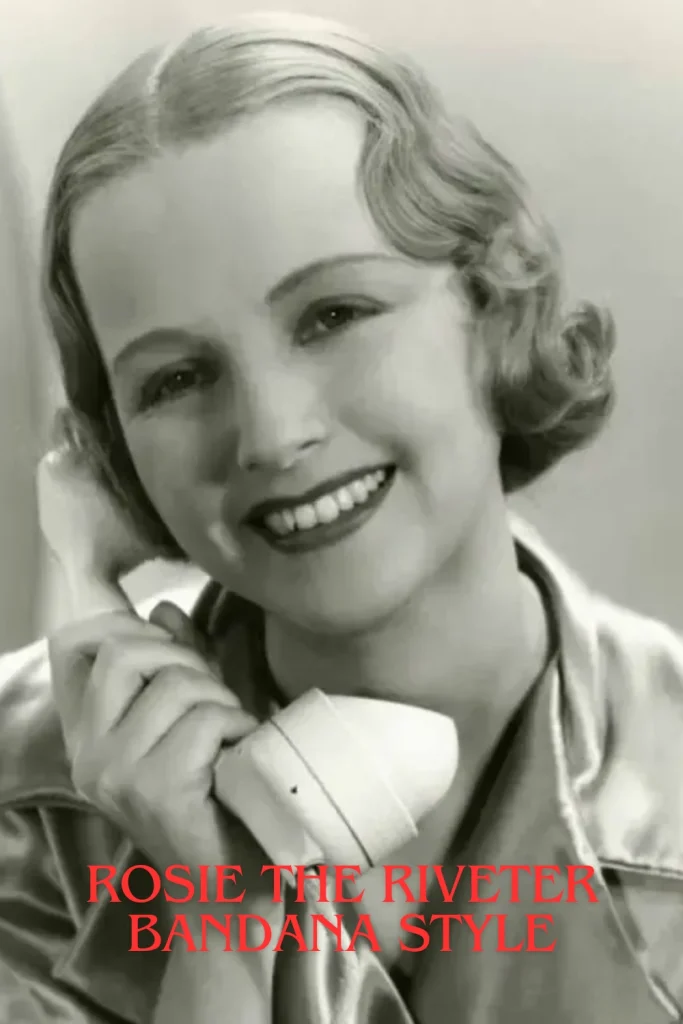
13. Soft Hollywood Waves
These cascading, brushed-out curls defined the red carpets of the 1930s and ’40s. With their silky, flowing movement, Hollywood waves are as elegant today as they were in black-and-white films. They suit medium to long hair best and can elevate any formal outfit, turning a simple dress into something Oscar-worthy.
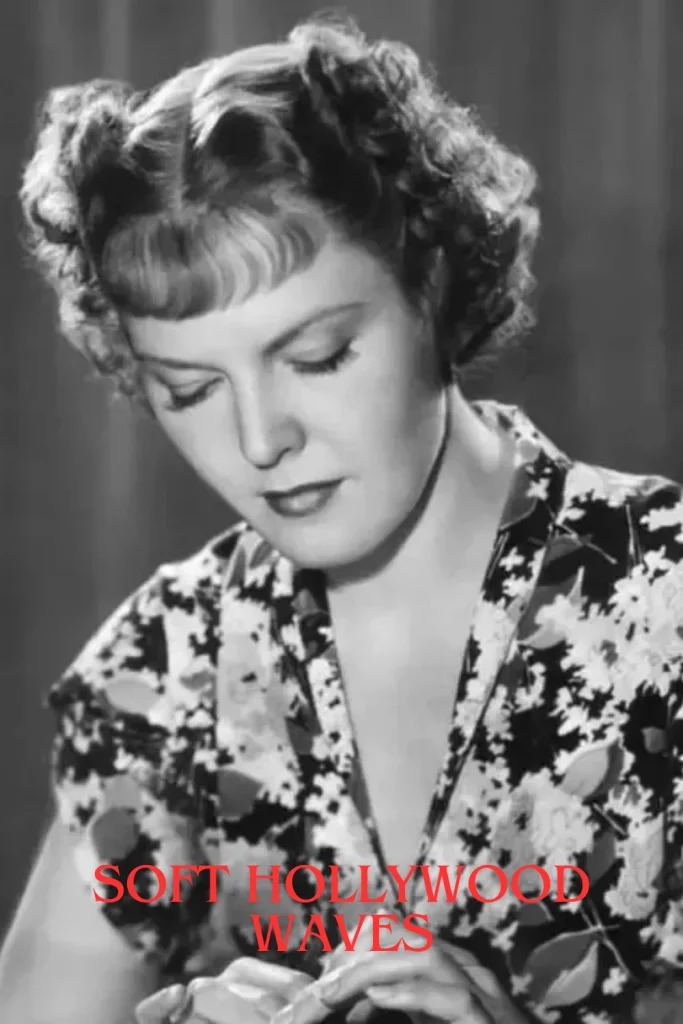
14. Rolled Updo
The rolled updo involves structured rolls pinned into elaborate shapes—often at the sides or nape of the neck. Worn by stars and homemakers alike during the 1940s, this look gave volume and structure while allowing creativity in placement. It’s ideal for formal gatherings and pairs beautifully with vintage clips or brooches.
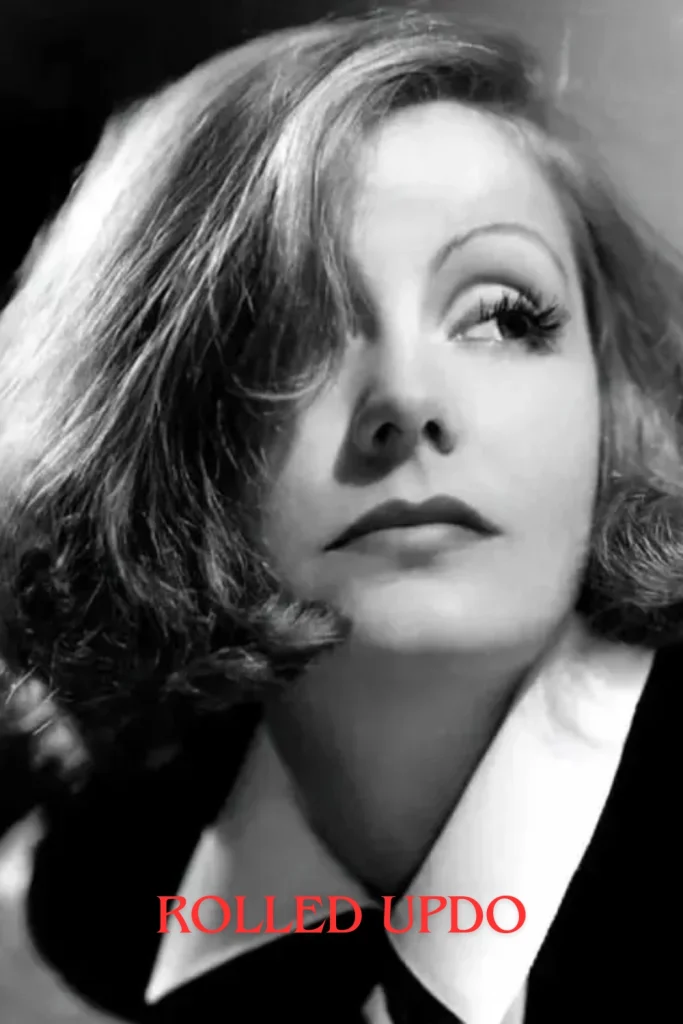
15. 1960s Flip
The flip was youthful and fun, with ends curled upward in a bubbly wave. Worn by style icons like Mary Tyler Moore and Marlo Thomas, it gave a bouncy energy to mid-length hair. When paired with a mini dress and go-go boots, it perfectly encapsulates the playful spirit of the swinging sixties.
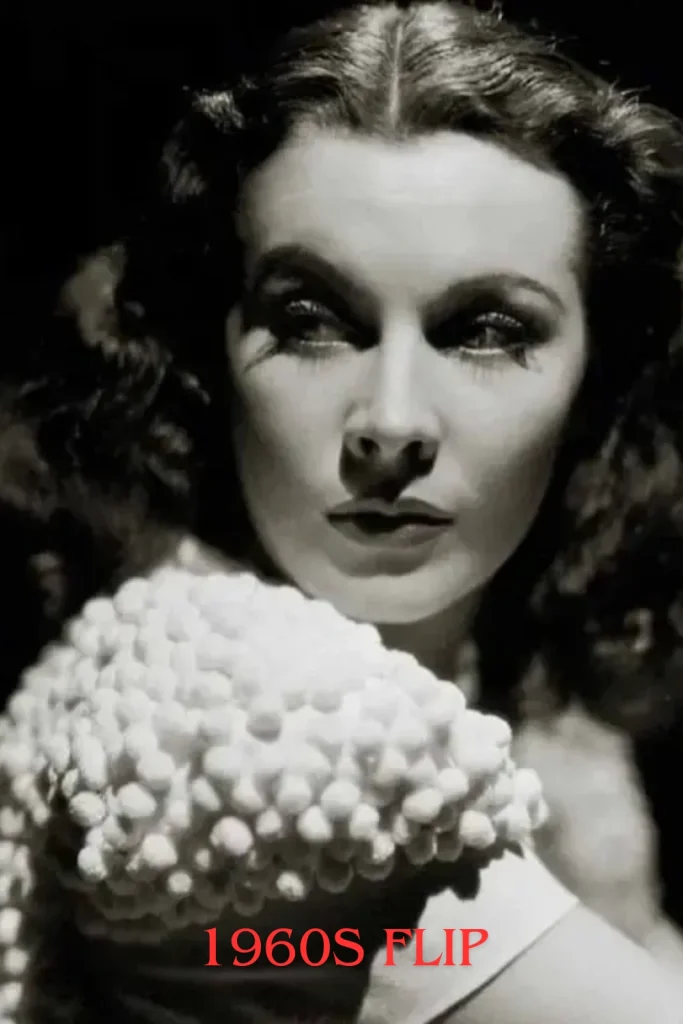
16. Brigitte Bardot Half-Updo
With teased volume at the crown and face-framing layers, Bardot’s signature half-up style epitomized effortless sensuality. It’s flirtatious yet elegant, especially when paired with thick lashes and soft waves. This look continues to be a muse for brides, editorial shoots, and anyone chasing that lived-in luxury.
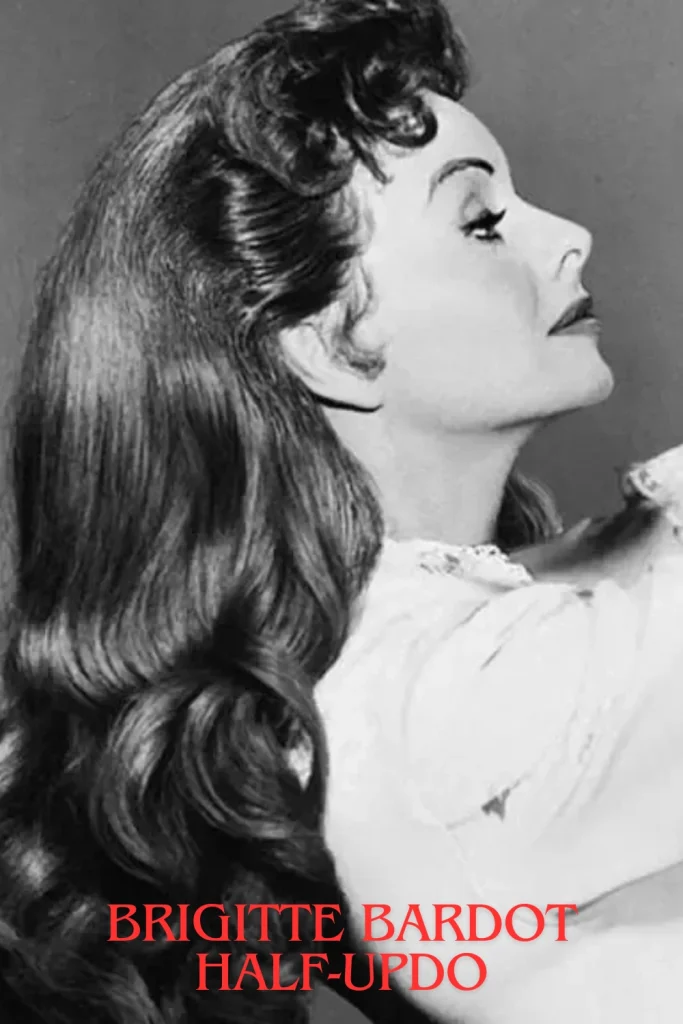
17. Veronica Lake Side Part
Lake’s deep side part and cascading peek-a-boo curls became an instant classic in the 1940s. The sultry, asymmetrical waves added mystery and magnetism to her screen presence. Ideal for a night out or a formal occasion, this hairstyle flatters most face shapes and draws attention to the eyes like few others.
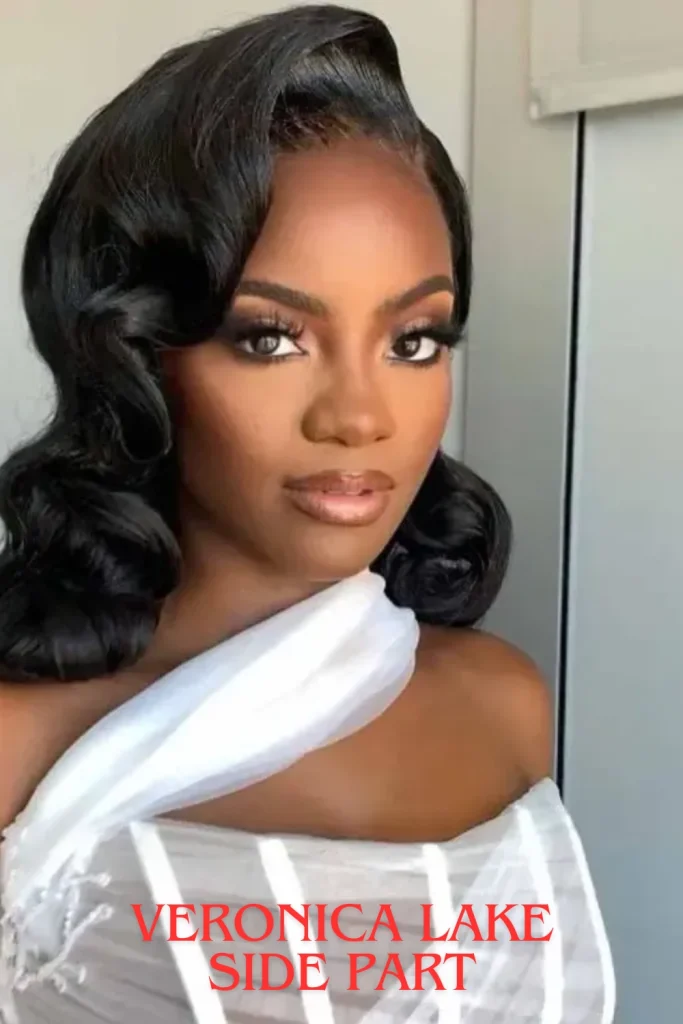
18. Curled Faux Bob
Perfect for those who want a short look without sacrificing length, the curled faux bob creates the illusion of a 1920s cut by tucking the ends under and pinning them at the nape. Add some vintage hairpins and finger waves around the face, and you have a chic, commitment-free transformation.
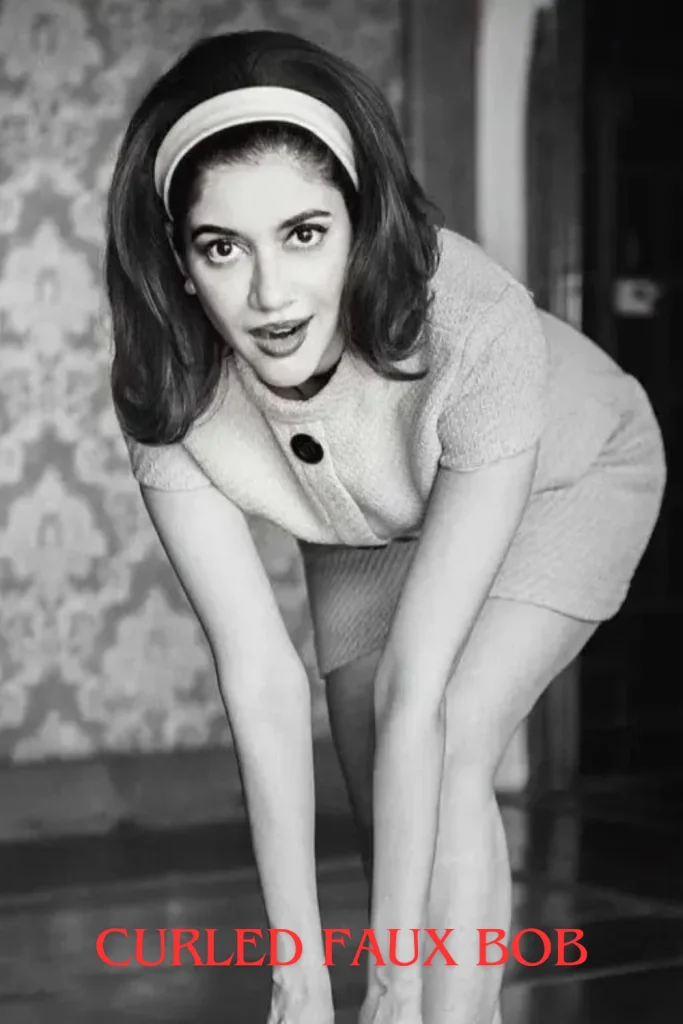
19. Crown Braid
The crown braid has long been associated with European folk styles, but it gained popularity in vintage fashion for its romantic, old-world charm. Wrapping around the head like a halo, it can be dressed up with flowers or kept simple for an ethereal effect. It’s ideal for outdoor events or boho-inspired looks.
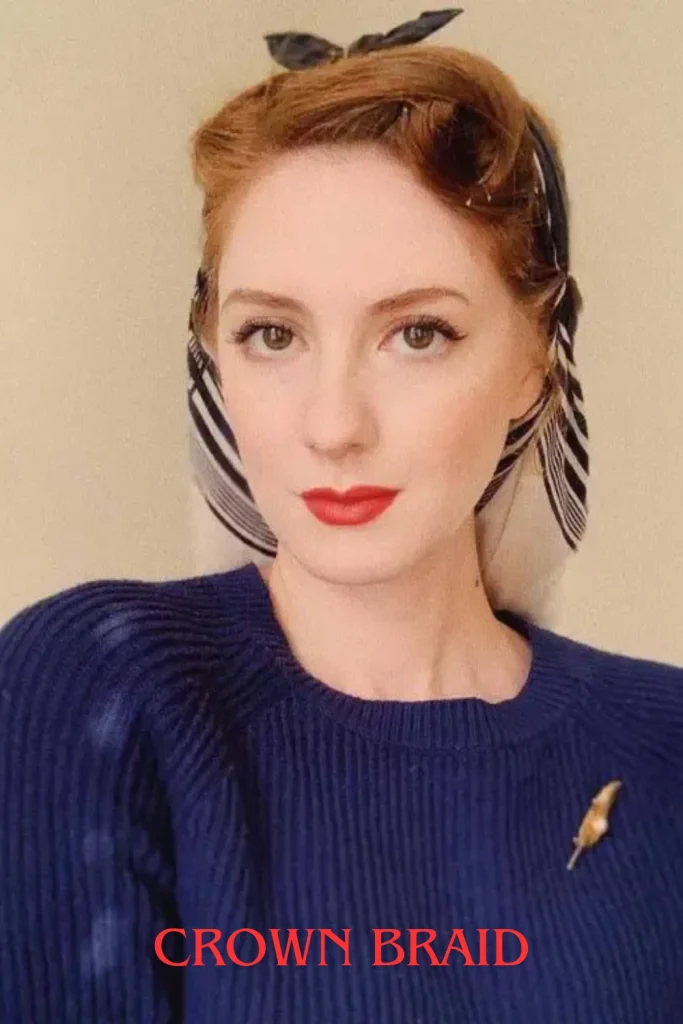
20. 1940s Side Rolls
With structured rolls on either side of the head, this 1940s style added both volume and sculptural interest. It was often worn with polished curls in the back and emphasized symmetry and poise. This hairstyle offers a strong vintage silhouette and pairs beautifully with red lipstick and a tailored dress.
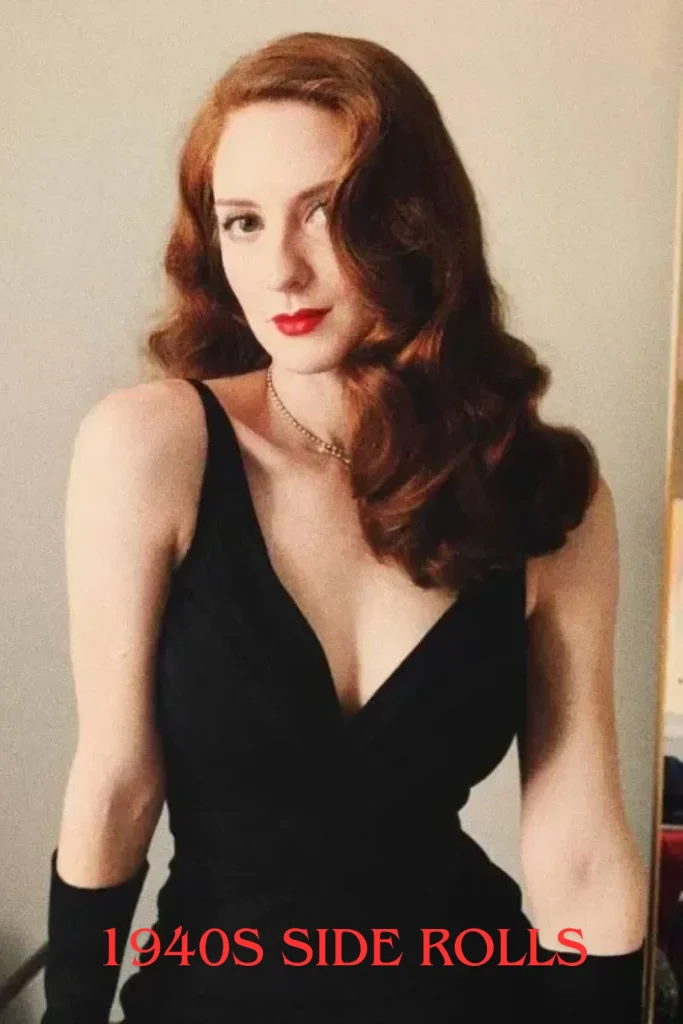
21. Sleek French Twist
The French twist is a refined updo that tucks the hair neatly into a vertical roll at the back. Popular in the ’50s and ’60s, it was favored for its ability to elongate the neck and highlight earrings or backless gowns. It remains a wedding favorite and is still synonymous with timeless sophistication.
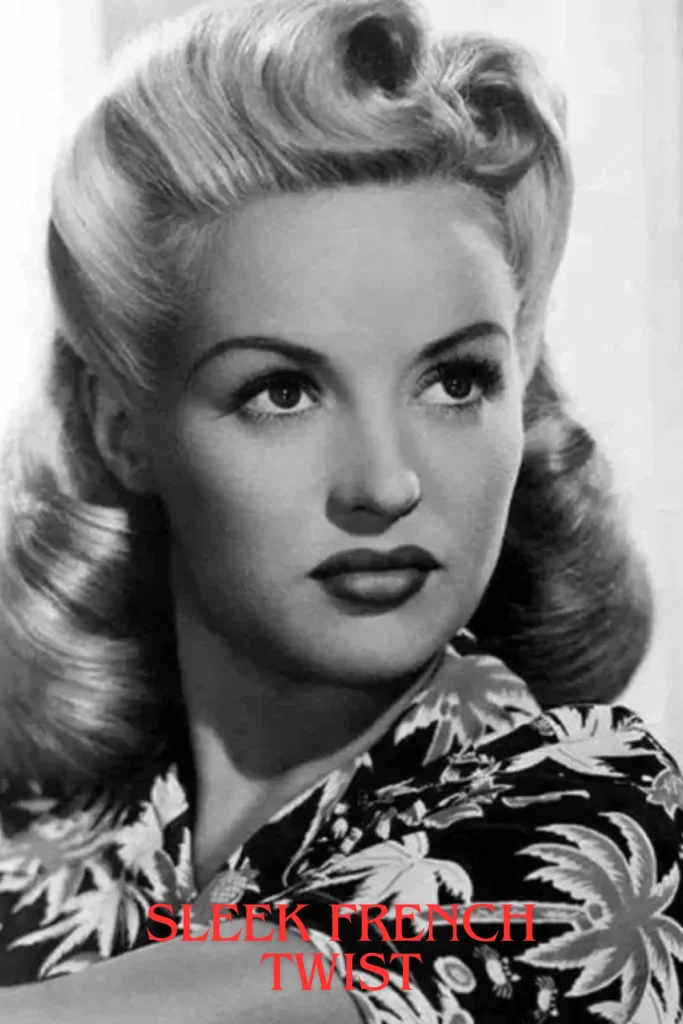
You can also learn about: Light Brown Hair
22. Fluffy Curls
Popular among 1950s housewives and movie stars, fluffy curls gave the hair body and bounce. Unlike tight ringlets, these curls are brushed out slightly for a softer, fuller appearance. Whether worn with a gingham dress or an elegant evening gown, they radiate warmth and femininity.
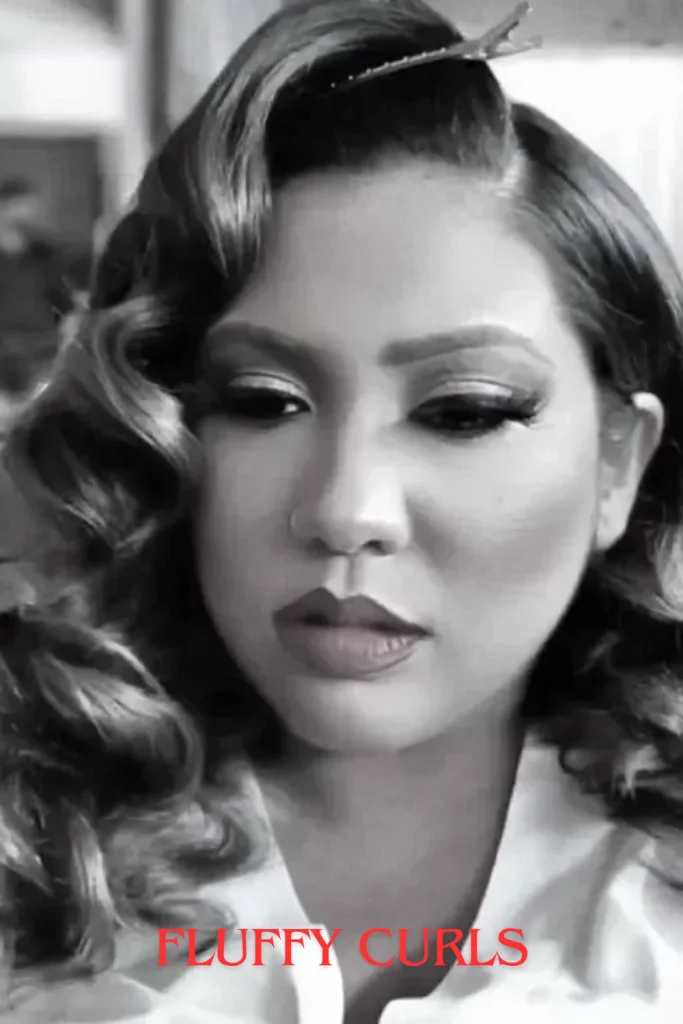
23. Retro Pixie Cut
Short, sweet, and fiercely stylish, the pixie cut found fame through Audrey Hepburn. This cropped cut enhances facial features and gives off an air of confidence and elegance. Add vintage curls or waves to the top for a playful retro twist.
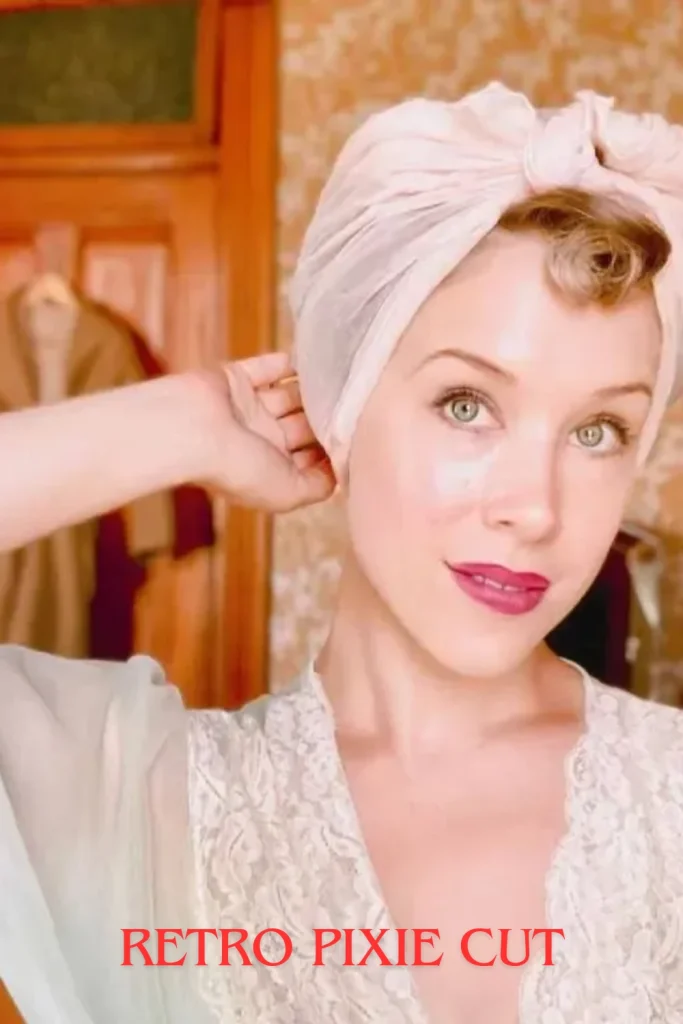
24. Pin Curls
Pin curls are a foundational styling technique for many vintage looks. Each curl is rolled and pinned while damp, then released to form perfect spirals or waves. Though time-consuming, the result is worth the patience—lush, uniform curls with a soft, romantic finish.
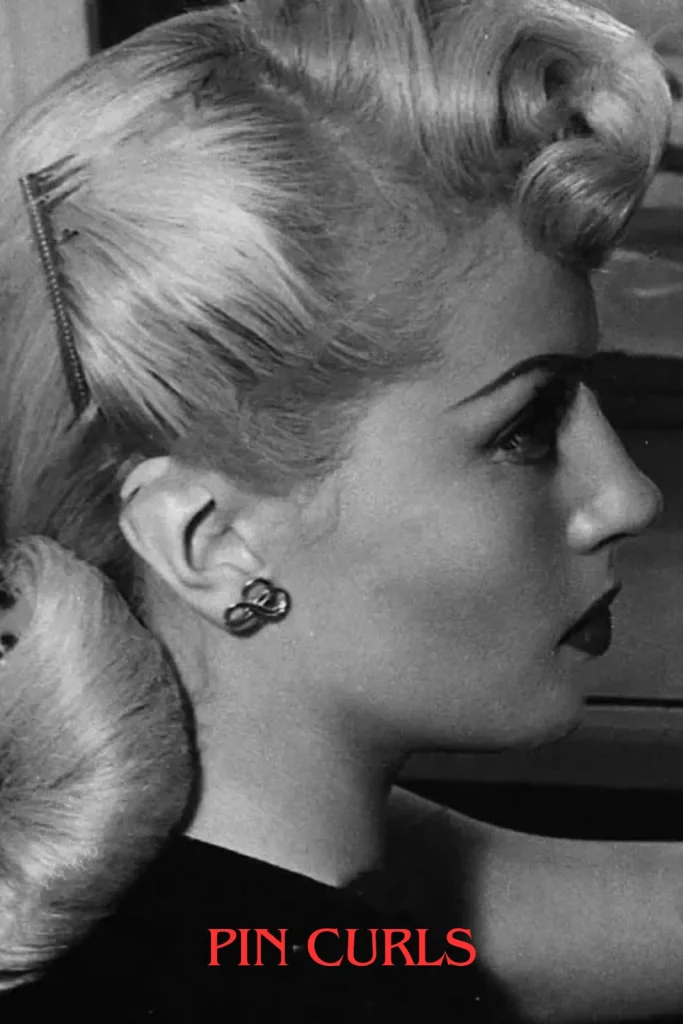
25. Scarf-Wrapped Updo
This hairstyle blends function with style. Hair is gathered into a loose bun or roll, then wrapped with a colorful scarf. Often worn during the 1940s, it was perfect for keeping hair tidy while adding a pop of personality. Today, it’s a stylish nod to hardworking women of the past.
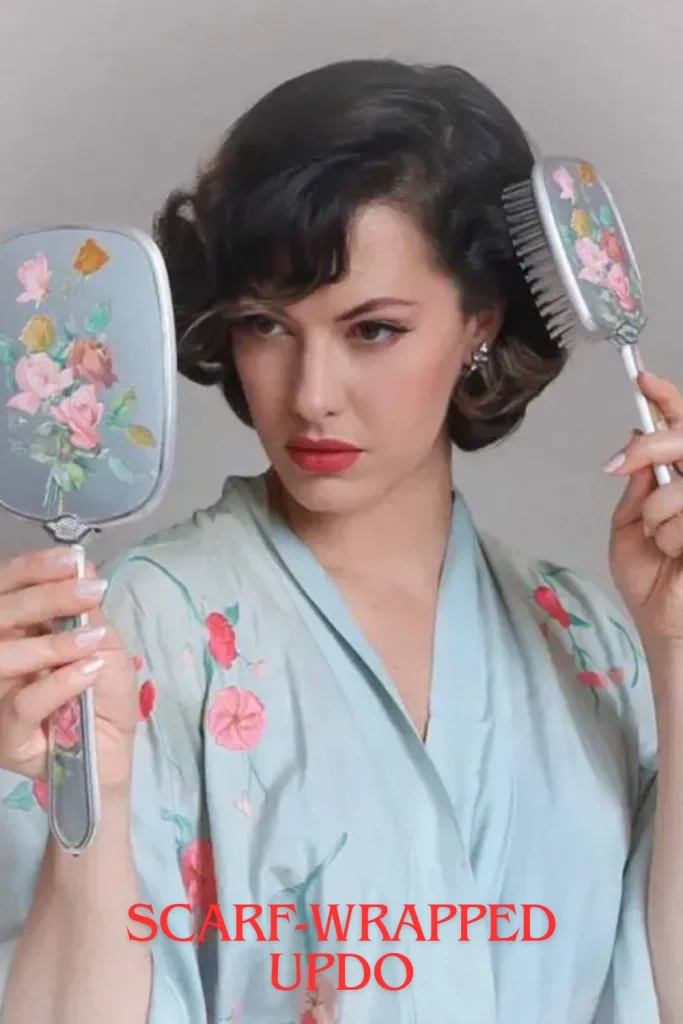
FAQs
What’s the most versatile vintage hairstyle for beginners?
Soft Hollywood waves and scarf-wrapped updos are beginner-friendly yet instantly give a vintage feel. With a little practice, you can level up to more structured styles like victory rolls or finger waves.
Can vintage hairstyles work with short hair?
Definitely! Styles like the pixie cut, flapper bob, and finger waves are ideal for short hair. Accessories like headbands or scarves can also help enhance vintage appeal.
Do I need special tools to achieve these looks?
A good set of rollers, bobby pins, a teasing comb, and strong-hold hairspray will go a long way. Heat tools can help speed up the process, but many vintage styles can be created with pin-setting techniques.
Are vintage hairstyles suitable for natural and textured hair?
Yes! Many vintage looks, such as the poodle cut or pin curls, work beautifully on curly and coily textures. It’s all about embracing your hair’s natural volume and enhancing it with the right technique.
Conclusion
Vintage hairstyles are more than just nostalgic trends—they’re creative expressions that have endured through decades. From the carefully sculpted rolls of the 1940s to the carefree curls of the 1960s, these looks each hold a slice of cultural history. Whether you’re stepping into a themed event or simply exploring new ways to express yourself, embracing vintage hair is like adding a little piece of art to your everyday life. Let the past inspire your next great hair day.
